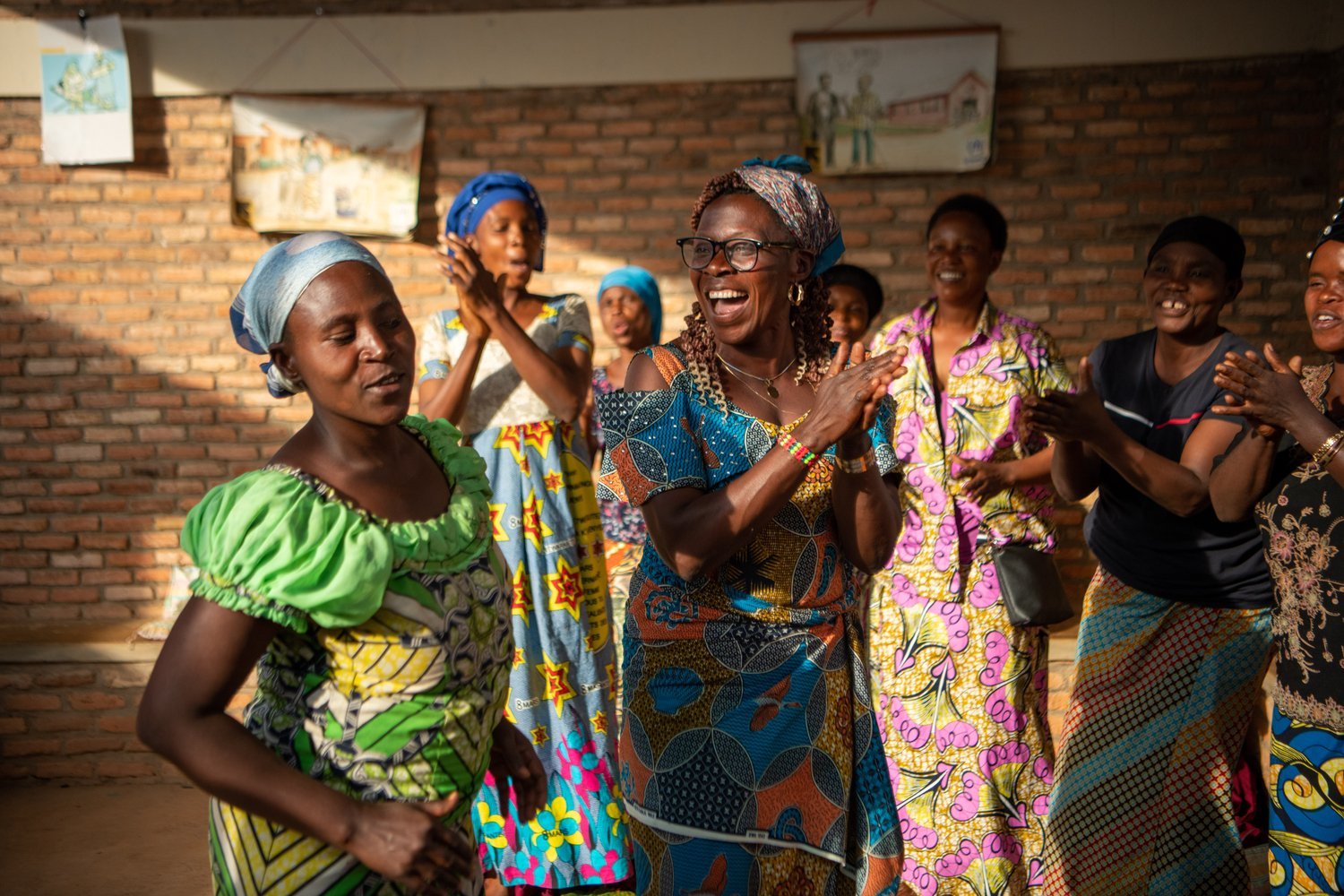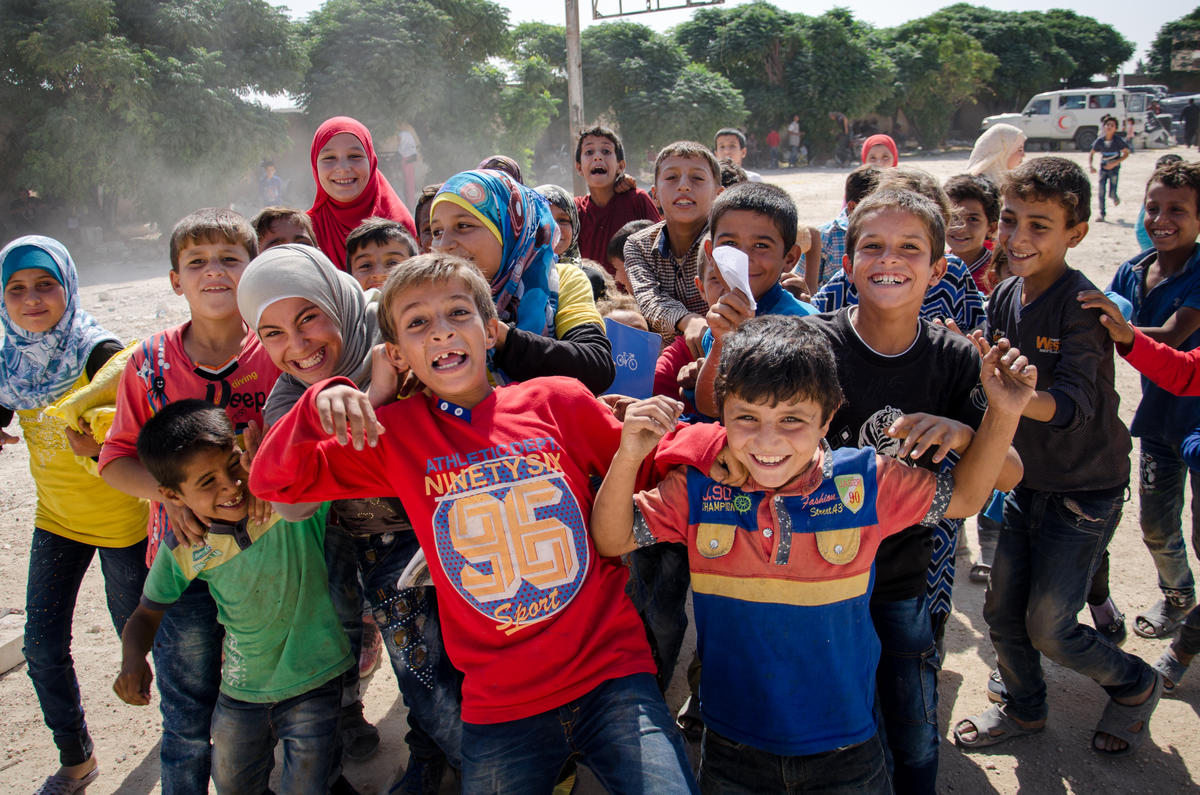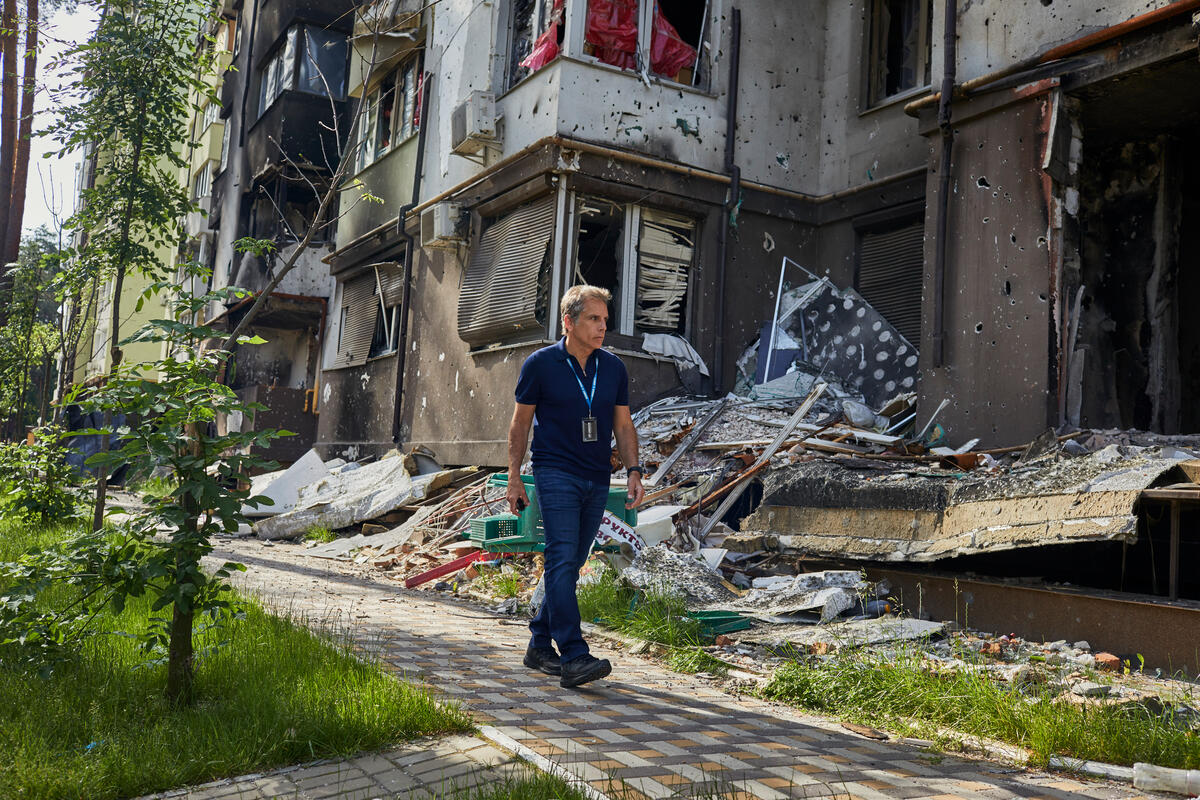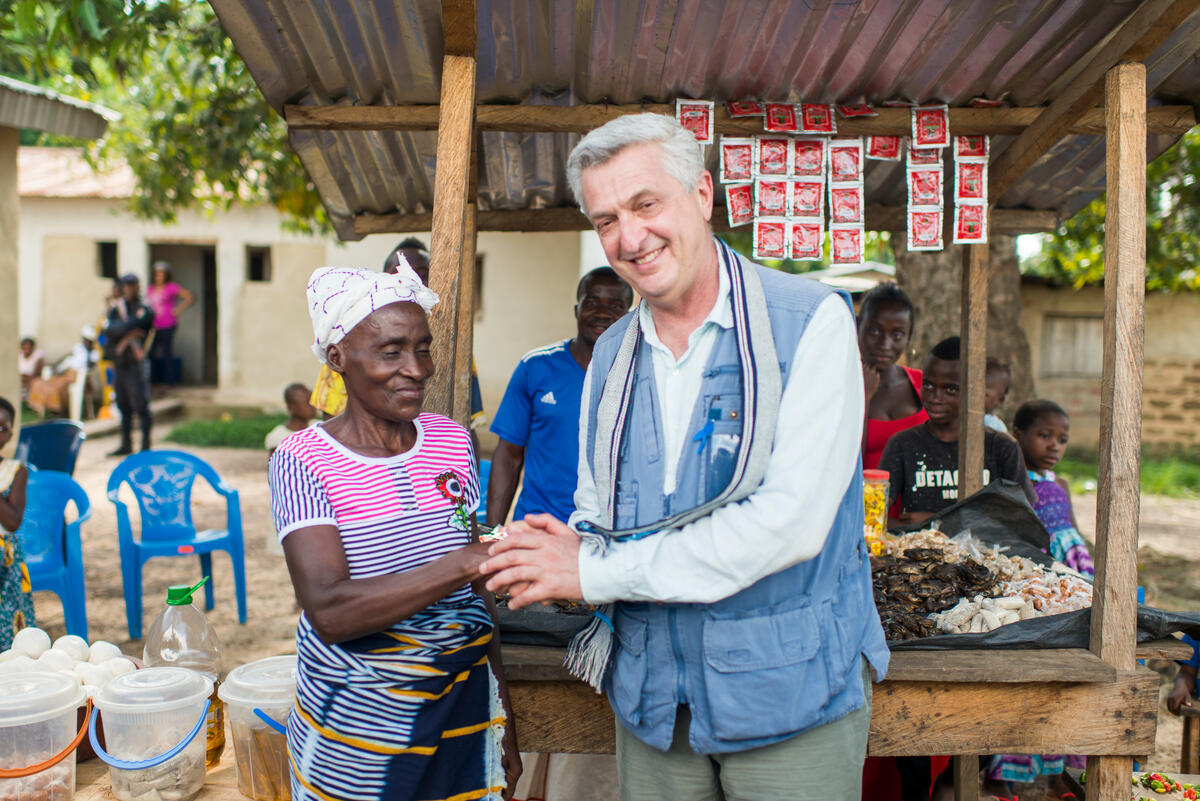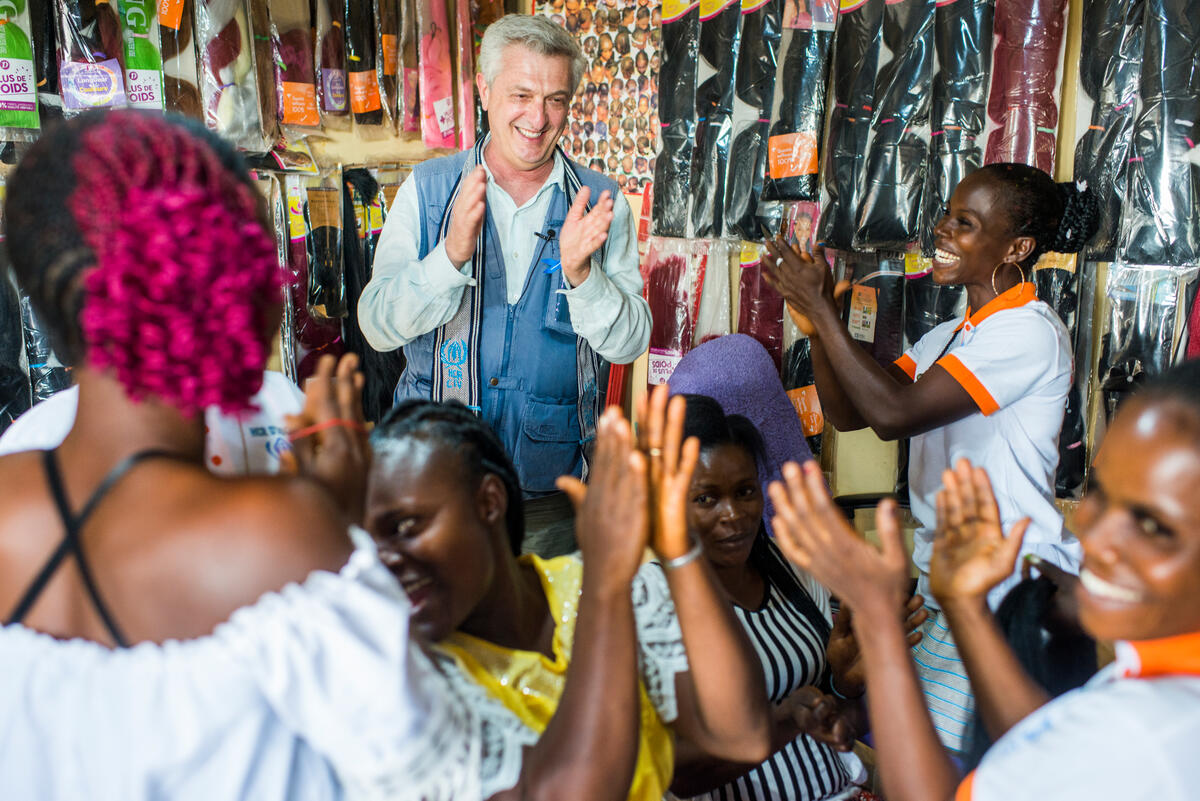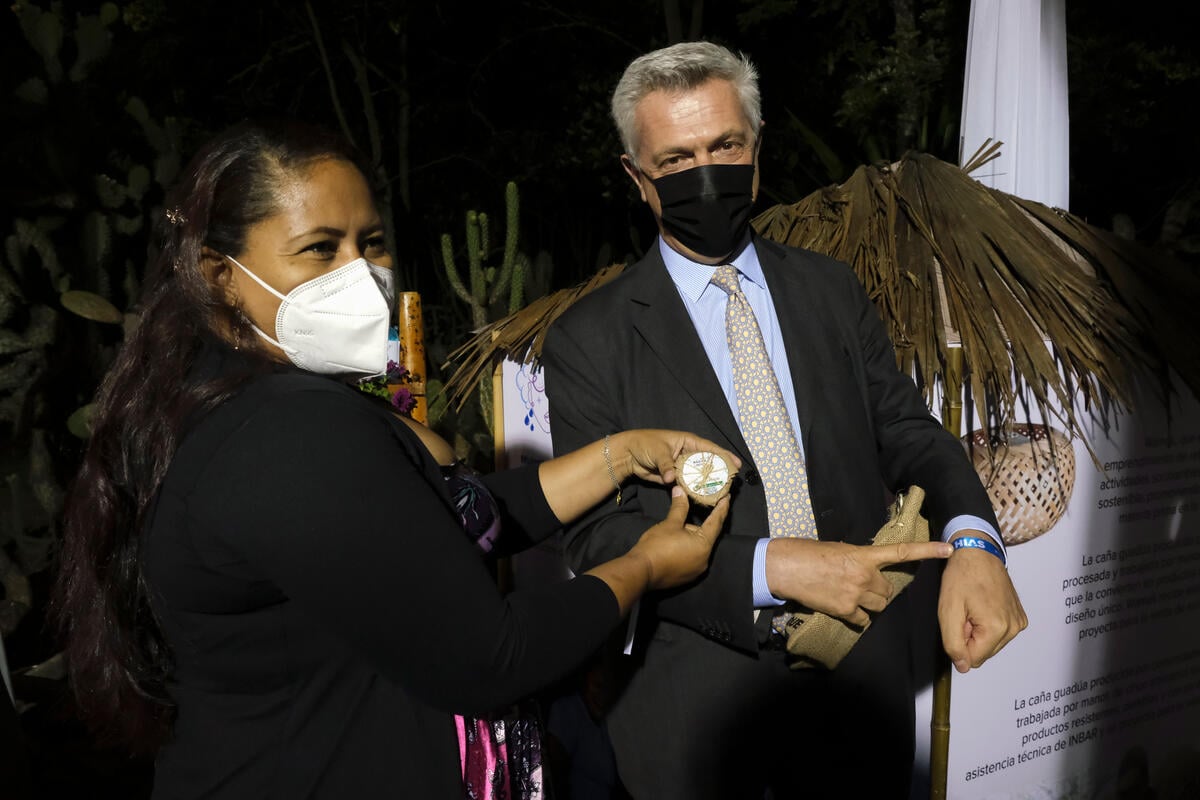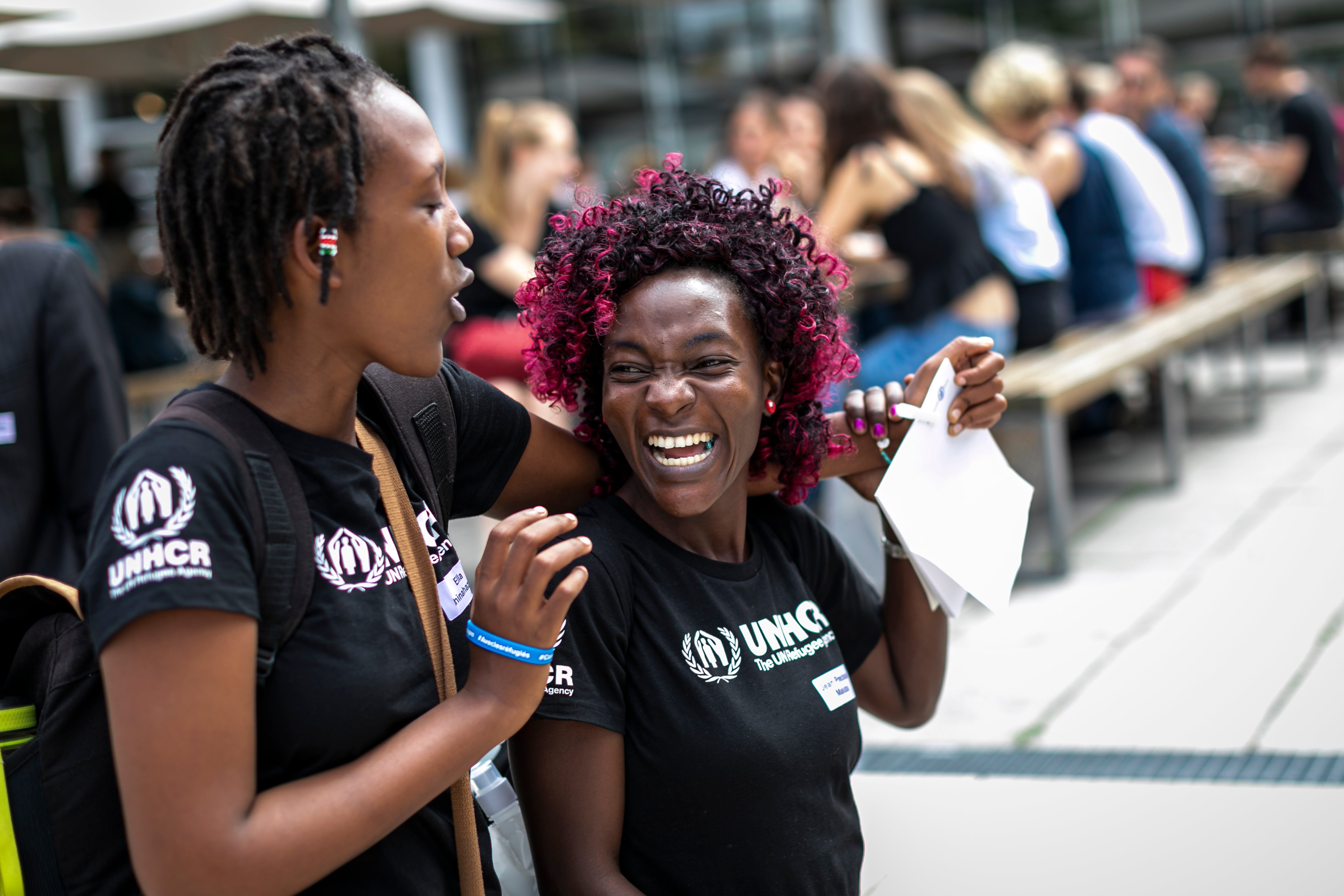Lubbers urges more support for refugees on World Refugee Day
Lubbers urges more support for refugees on World Refugee Day
Geneva - The United Nations High Commissioner for Refugees today (Tuesday) hailed the World's First Refugee day and urged decision makers to do more to preserve the institution of asylum and give financial backing for refugee programmes world-wide.
"This is very timely," High Commissioner for Refugees Ruud Lubbers said. "The system for supporting refugees is under unprecedented strain. I just hope that all the impressive grassroots efforts to highlight World Refugee Day will translate into more political and financial support."
Plagued by funding shortages, the UN refugee agency has been forced to reduce staff and cut programmes around the world. The austerity measures have affected refugee programmes from Africa to Central Asia to the Caucasus and South America.
"Refugees are resourceful people, survivors - but they still need considerable help from the international community," said Lubbers. "Helping them and protecting them is a moral and legal obligation, rather than an optional act of charity," he added.
The World Refugee Day, which takes place on Wednesday, 20 June, will be marked across the world by numerous events organised by refugees themselves, non-governmental organisations, schools, universities, musicians, politicians and the UN refugee agency.
The decision to nominate 20 June as World Refugee Day was made on 4 December last year in a resolution adopted unanimously by the UN General Assembly.
The theme of the first World Refugee Day is RESPECT - respect for refugees themselves and recognition of the positive contribution so many of them make to their host societies; and Respect for the 1951 Refugee Convention, the bedrock of the international system for protecting refugees, which has its 50th anniversary this year. So far, a total of 140 countries have ratified this convention and/or its 1967 Protocol.
UNHCR currently cares for some 21 million refugees, internally displaced people, stateless people and others groups considered of concern to the agency.


